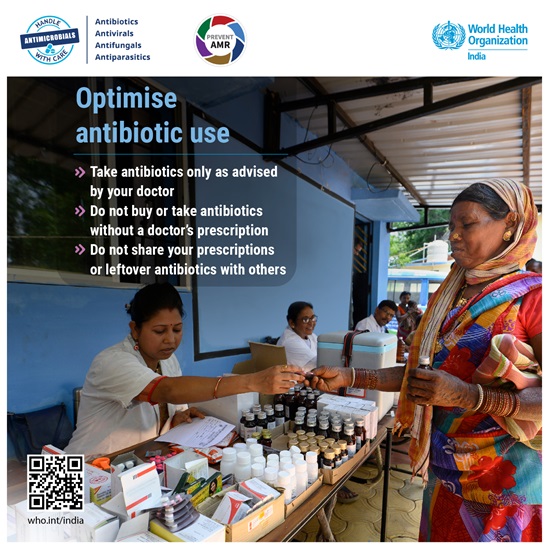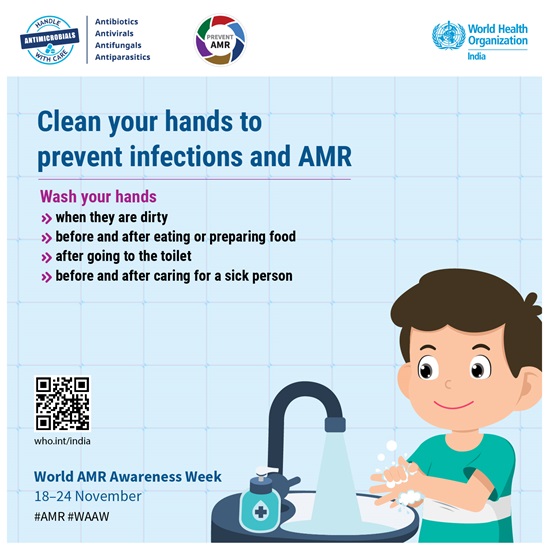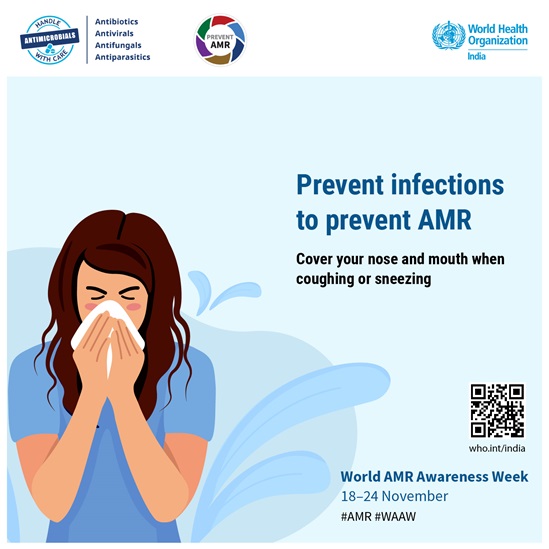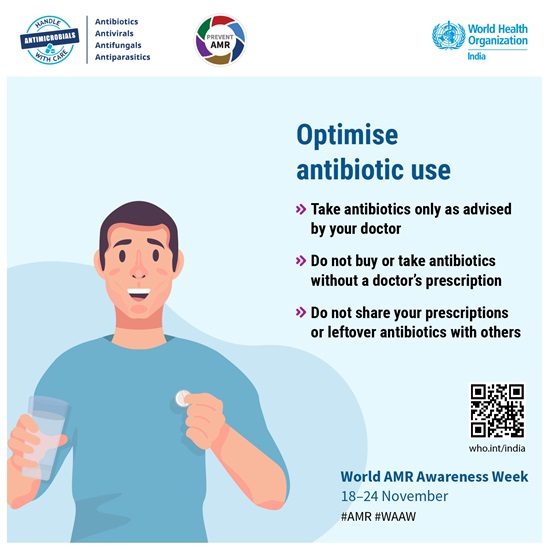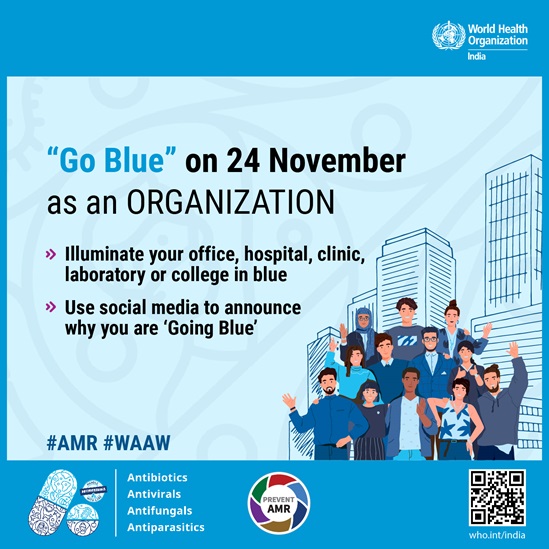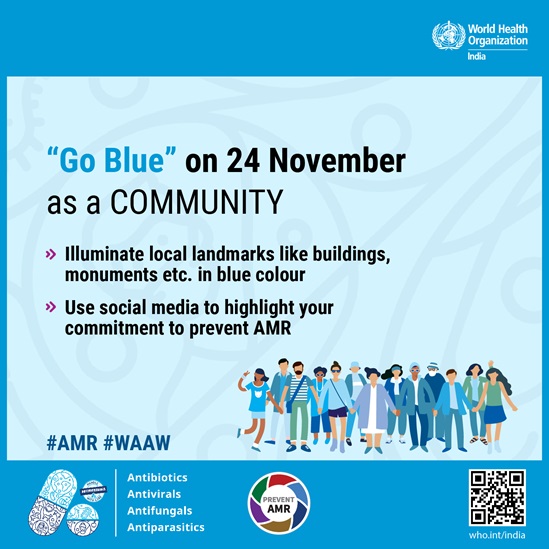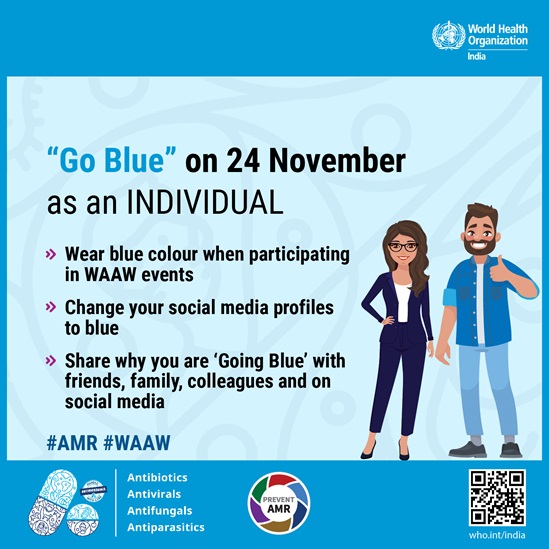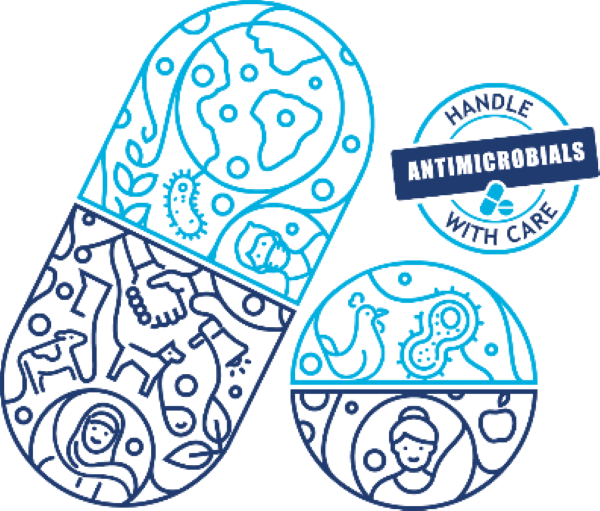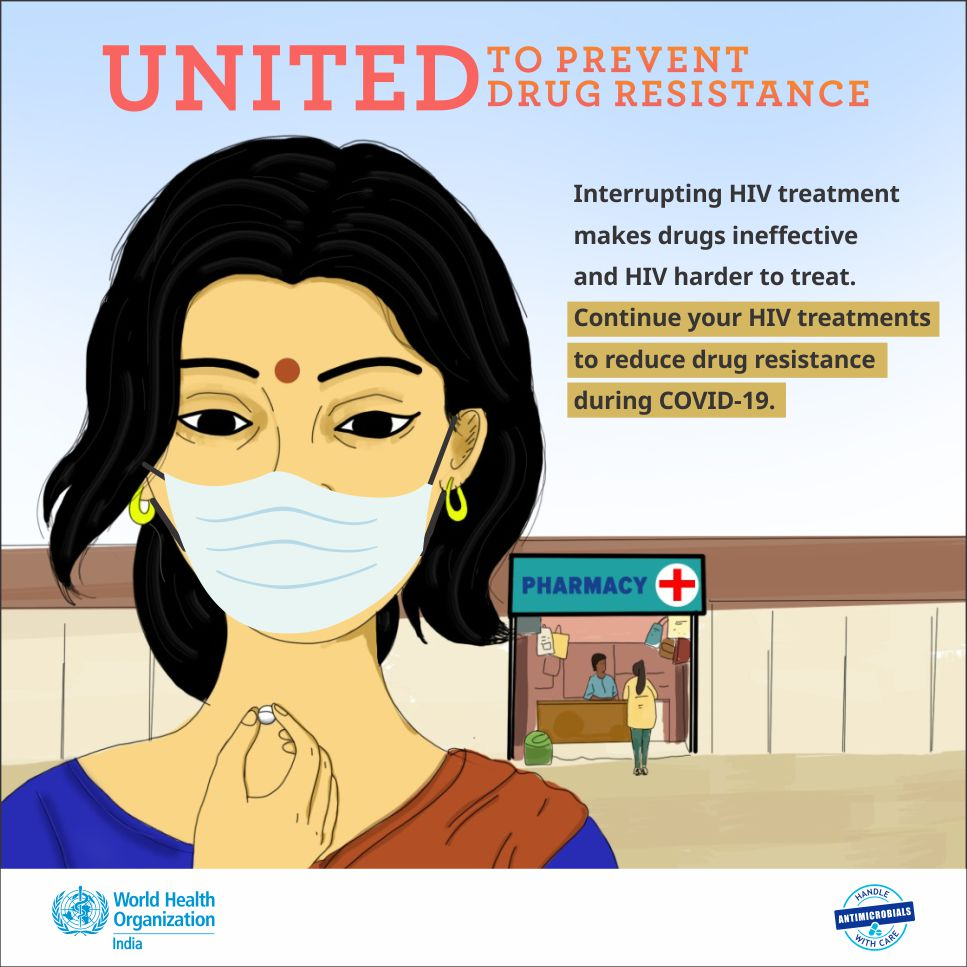
World AMR Awareness Week 2023
18 - 24 November 2023
Antimicrobial resistance (AMR), also known as drug resistance – occurs when microorganisms such as bacteria, viruses, fungi and parasites change in ways that render the medications used to cure the infections they cause ineffective. When the microorganisms become resistant to most antimicrobials they are often referred to as “superbugs”.
This is a major concern because a resistant infection may kill, can spread to others, and imposes huge costs to individuals and society.
The World AMR Awareness Week (WAAW) is a global campaign to raise awareness and understanding of AMR and promote best practices among One Health stakeholders to reduce the emergence and spread of drug-resistant infections. The theme for WAAW 2023 is "Preventing antimicrobial resistance together". AMR is a threat to humans, animals, plants and the environment. It affects us all.
Message from WHO Representative to India
Multimedia
Go Blue for AMR
General information
Publications
National Guidelines for Infection Prevention and Control in Healthcare Facilities
State Action Plan to Combat Antimicrobial Resistance in Delhi (SAP-CARD)
Madhya Pradesh State Action Plan for Containment of Antimicrobial Resistance
Kerala Antimicrobial Resistance Strategic Action Plan
Guidance to Develop State Action Plans for Containment of Antimicrobial Resistance
News
The world is running out of antibiotics, WHO report confirms
WHO multi-country survey reveals widespread public misunderstanding about antibiotic resistance
World leaders and experts call for action to protect the environment from antimicrobial pollution
Lack of innovation set to undermine antibiotic performance and health gains
Preventing antimicrobial resistance together: Quadripartite announces WAAW 2022 theme
Urgent call for better use of existing vaccines and development of new vaccines to tackle AMR
WHO releases first-ever list of health-threatening fungi
The Global Leaders Group host side event at UN General Assembly on Antimicrobial Resistance
Technical resources
Global action plan on antimicrobial resistance
Sexually transmitted infections drug resistance
Factsheets
Antimicrobial resistance (who.int)
Antibiotic resistance (who.int)
Multi-drug resistant gonorrhoea (who.int)
Questions and answers
Antimicrobial resistance: The food chain
Antibiotic resistance: Why vaccination is important
Multidrug-resistant tuberculosis (MDR-TB)



